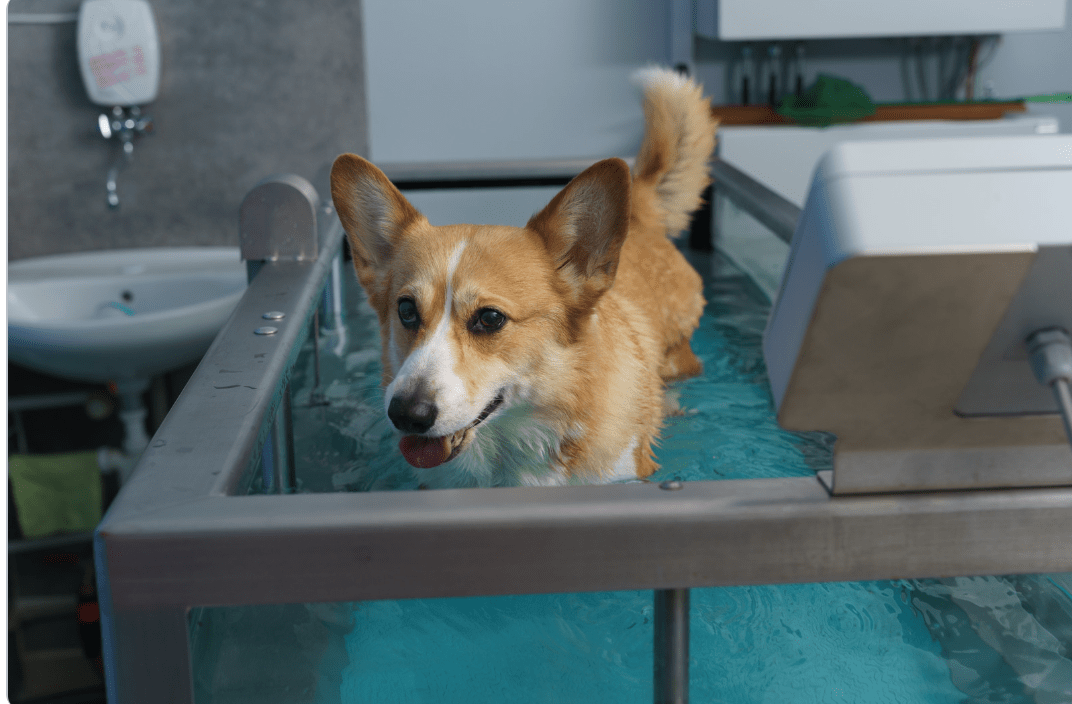
Therapies and Rehabilitation for Senior Dogs: Enhancing Quality of Life
As our dogs age, they often face challenges such as joint pain, decreased mobility, and other health issues. These issues can significantly affect their quality of life. Fortunately, there are various therapeutic options available that can help senior dogs feel better and even regain some of their youthful vitality. Let’s explore some of the most effective therapies for our beloved senior dogs!
Hydrotherapy: A Soothing Solution for Aching Joints
Hydrotherapy, or water therapy, is a gentle yet effective way to help senior dogs maintain and regain strength and mobility without putting too much stress on their aging joints. This therapy involves activities like swimming or walking on an underwater treadmill, which allows dogs to exercise in a buoyant, low-impact environment.
Benefits of Hydrotherapy:
- Reduced pain and inflammation: The water’s buoyancy reduces strain on joints, which can alleviate pain and inflammation.
- Increased muscle strength and endurance: The resistance of water makes the muscles work harder than they do on land, helping to build strength and endurance.
- Improved circulation and flexibility: Water exercises improve blood flow and flexibility, aiding overall health and mobility.
Getting Started with Hydrotherapy:
To begin hydrotherapy with your senior dog, consult with a veterinarian who can recommend a certified animal hydrotherapist. It’s important to choose a facility that understands the needs of older dogs and has experience in handling them gently and effectively.
Acupuncture: Traditional Healing for Modern Pets
Acupuncture, a traditional Chinese medicinal therapy, involves inserting thin needles into specific points on the body to stimulate nerves, increase blood circulation, and enhance the release of endorphins and other natural body painkillers.
Benefits of Acupuncture:
- Pain relief: Acupuncture is particularly beneficial for dogs suffering from arthritis and spinal issues.
- Improved mobility: Regular sessions can help improve overall mobility and activity levels in senior dogs.
- Enhanced well-being: Acupuncture can help reduce stress and promote a sense of well-being, which is especially valuable for aging pets.
Getting Started with Acupuncture:
Look for a veterinarian certified in veterinary acupuncture. These professionals have undergone additional training to safely and effectively perform acupuncture on animals. A consultation will typically involve a thorough assessment of your dog’s health and specific needs.
Physical Therapy: Strengthening Bodies, Boosting Spirits
Physical therapy for dogs, similar to human physical therapy, involves exercises and treatments designed to improve post-operative recovery, manage chronic conditions, and maintain physical wellness.
Benefits of Physical Therapy:
- Enhanced mobility and balance: Exercises tailored to your dog’s needs can help improve their mobility and balance, reducing the risk of falls.
- Pain management: Techniques like massage and stretching can help alleviate pain.
- Better quality of life: Regular physical activity can help keep senior dogs more engaged and active, improving their overall quality of life.
Getting Started with Physical Therapy:
A veterinary physical therapist can develop a customized therapy plan based on your dog’s specific health profile and needs. Start with a referral from your primary veterinarian, who can help connect you with the right specialists.
Diet: The Most Important Step
Ensuring your senior canine is getting the nutrients they need is a crucial step in maintaining their health. It’s so important that we wrote an entire blog about it! Check it out to learn how the food your senior dog impacts their overall health!
Embrace These Rehabilitation Therapies
Integrating special rehabilitation therapies into the care routine of your senior dog can make a significant difference in their health and happiness. These therapies not only help manage pain and mobility issues but also contribute to a more joyful and fulfilling life for your aging dog. Always consult with your vet to determine the best course of action tailored to your dog’s individual needs. By embracing these therapeutic options, you can help ensure that your senior dog’s golden years are as comfortable and enjoyable as possible.
